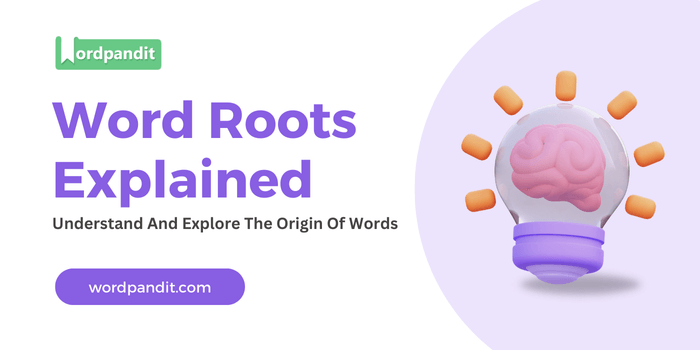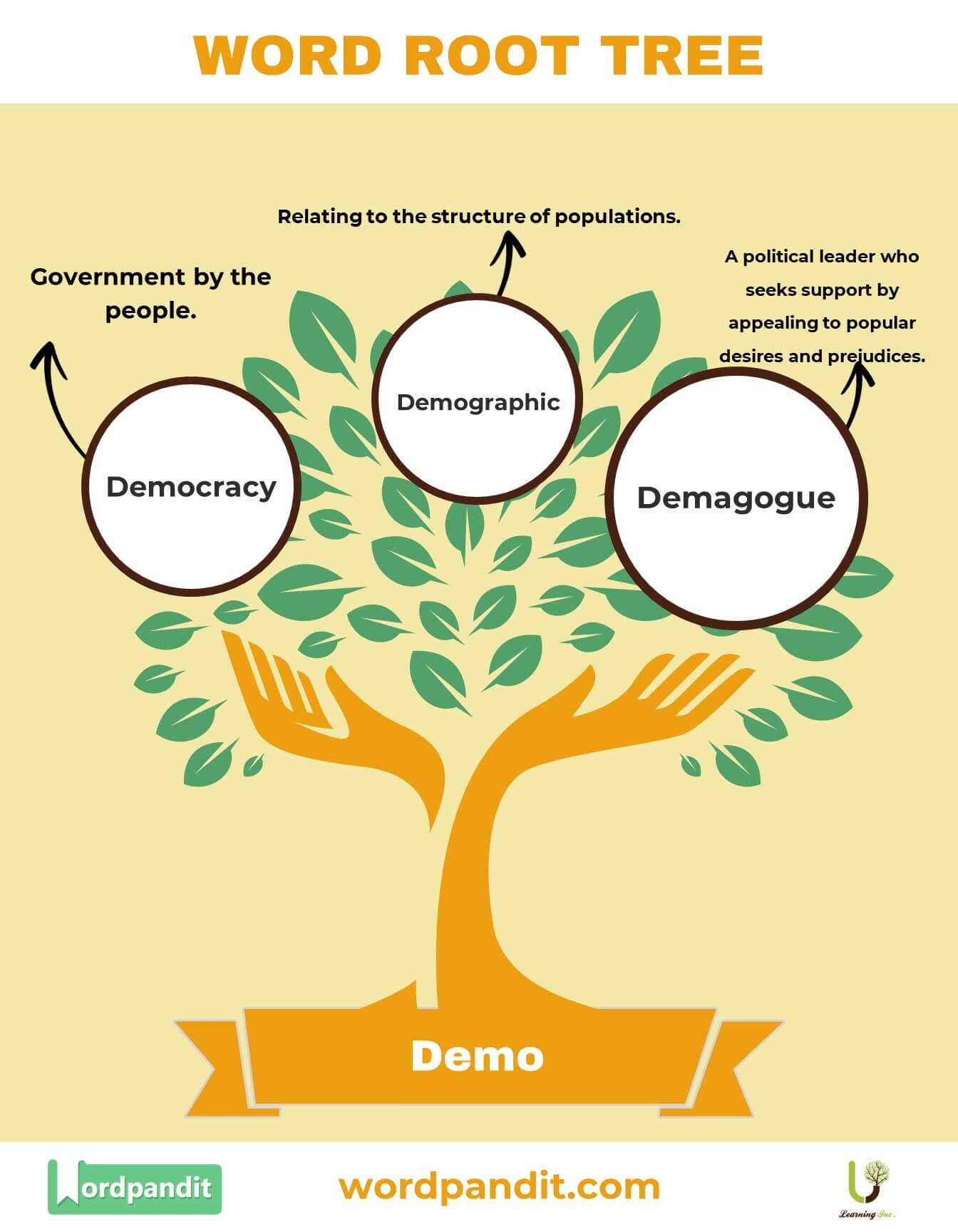Exploring the Word Root ‘Demo’: A Reflection on People and Population
The Greek root ‘Demo’ originates from the word ‘Demos’, meaning ‘people’. It forms the basis for numerous terms that refer to public, population, or collective human aspects. A classic example is ‘democracy’, a type of governance where the rulers are elected by the people, which decomposes into:
- Demo: People
- Cracy: Rule
This breakdown reveals that democracy literally means the rule of/by the people.
Example Sentence
Even though the politician claimed to strive for democracy, he was nothing but a demagogue, cunningly trying to win over the populace.
Categorised Words Based on the Root ‘Demo’
Commonly Used Words Based on ‘Demo’
- Democracy: Government by the people.
- Demographic: Relating to the structure of populations.
- Demagogue: A political leader who seeks support by appealing to popular desires and prejudices rather than using rational argument.
- Demotic: Pertaining to the common people, especially in reference to language.
Archaic Words Based on ‘Demo’
- Demophile: An obscure term for someone who loves people; not commonly used in contemporary language.
Technical Words/Jargon Based on ‘Demo’
- Demography: The statistical study of populations, especially human beings.
- Epidemiologist: A scientist who studies the incidence, distribution, and control of disease in a population.
- Demoeconomy: A term used to describe economic demographics or population-based economic studies.
Related Word Roots
- Popul-: From the Latin ‘populus’, meaning ‘people’, used in:
- Population: The inhabitants of a particular area.
- Populist: A supporter of the rights and power of the people.
- Populace: The people living in a particular country or area.
- Ethno-: From the Greek ‘ethnos’, meaning ‘nation’ or ‘people’, seen in:
- Ethnicity: Social groups with a shared history, culture, or ancestry.
- Ethnography: The scientific description of the customs of individual peoples and cultures.
- Ethnology: The study of the characteristics of various peoples and the differences and relationships between them.















good
appricable and very useful
I’m so grateful to you for the effective and fantastic attempt.
Best wishes